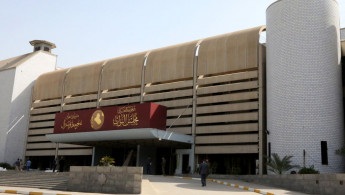Iraqi parliament postpones controversial amendments to personal status law
The Iraqi parliament on Wednesday postponed the first reading of amendments to the Personal Status Law No. 188 of 1959 after facing rejection from several lawmakers and widespread public criticism for potentially legalising child marriages and depriving women of basic rights.
The amendment has sparked concerns among human and women's rights activists, who argue it could exacerbate violations of women's rights, deepen sectarian divides in Iraq, and potentially legalise marriage for girls as young as nine years old.
In a statement on Wednesday, the legislature announced the postponement of debates on the controversial amendments.
The proposed amendments, largely driven by the ruling Shia Coordination Framework and already published on social media networks, aim to grant religious authorities more power over personal status matters. Specifically, the changes would allow clerics from Shia and Sunni endowments to finalize marriage contracts outside the court system, raising serious legal questions about the validity of such unions, particularly regarding age requirements for marriage.
The amendments require coordination between the Shia and Sunni Endowments and the Council of Representatives to develop a "Personal Status Code" within six months. This code would outline separate regulations for Shia and Sunni personal status matters, relying on scholars' prevailing opinions when specific provisions are absent.
Under current Iraqi law, the legal marriage age is 18, or 15 with a judge's permission in special circumstances. However, about a third of marriages in Iraq are unregistered, conducted by religious leaders, and not legally valid. Child marriage is not uncommon in conservative and rural areas of Iraq, as well as in other Arab countries.
Before the session, Dara Sekaniani, a member of the parliament's legal committee, explained in a phone interview with The New Arab that the issue of child marriage is not clearly indicated in the amendments. Instead, it would be left to the jurisdiction of Shia and Sunni endowments to organize a code and submit it to the parliament six months after ratifying the amendments.
In 2021, Iraq's top Shia cleric, Grand Ayatollah Ali al-Sistani, addressed the issue of child marriage, noting it was once common in Eastern societies but has declined recently. He emphasised that a girl's guardian should only marry her off in her best interest, typically after she reaches physical and psychological maturity. Marrying her against the law brings unnecessary problems and consequences.
One of the central elements of the amendments is the provision allowing Iraqis to choose either the Shia or Sunni sect's rules for all personal status matters at the time of marriage. If no sect is chosen, individuals can request the competent Personal Status Court to apply the Sharia rules of their preferred sect, which the court must honour.
Changes to Article 57 propose modifying child custody arrangements, giving priority to mothers in divorce cases. However, the court would retain the authority to decide the most suitable parent for custody based on specific criteria, including the child's best interests. Upon reaching the age of 15, a child would have the right to choose which parent to live with. If neither parent is deemed suitable, custody may be granted to a qualified guardian, or the child may be placed in state-run residential institutions.
The Iraqi parliament's decision to postpone further debate on the amendments reflects the significant controversy and deep concerns surrounding their potential impact. As discussions continue, the parliament faces the challenge of balancing religious authority with the protection of women's rights and the preservation of sectarian harmony in Iraq.





 Follow the Middle East's top stories in English at The New Arab on Google News
Follow the Middle East's top stories in English at The New Arab on Google News


